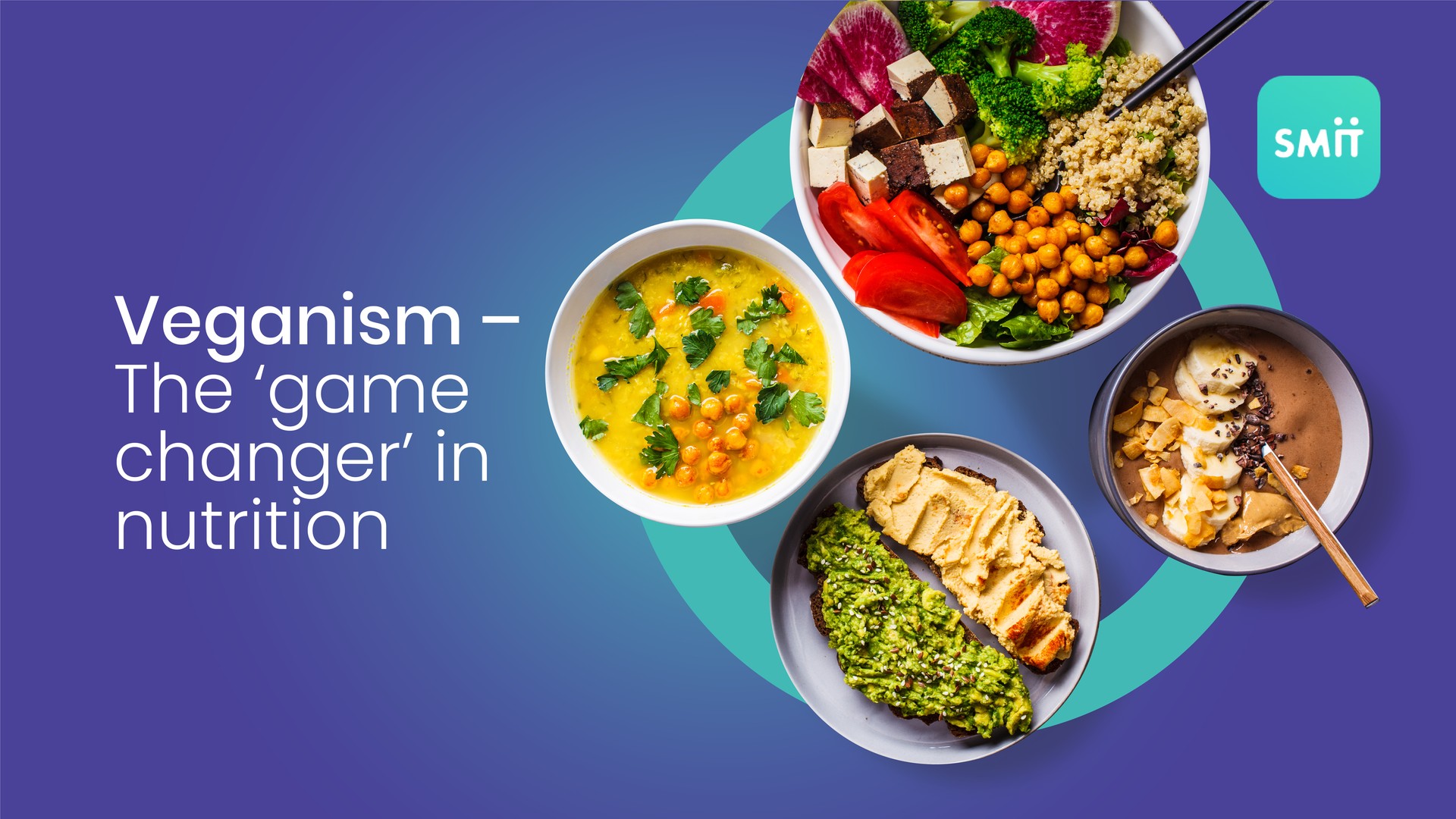The Netflix series ‘Game Changers’ has garnered a lot of attention by health and fitness enthusiasts on making that switch to a plant-based, or what is famously known as, a vegan diet. A plant-based diet is now considered one of the healthiest ways of life, its benefits stretching beyond just weight loss. There is a lot of upcoming research on the numerous benefits of a vegan diet – not just for the human body, but for the environment and our mother Earth!
Veganism has become quite a buzz word in recent times – and rightly so. It has become more a way of life.
Let us review the top health benefits of a plant based diet!
- Heart friendly: Research studies have shown that switching to a plant-based diet can help lower both, your blood pressure, and the risk of developing heart diseases. A vegan diet also helps in lowering cholesterol levels, thus helping reduce the risk of heart attacks and stroke. The plant-based diet is a ‘clean diet’ and consists of whole grains, legumes, nuts, seeds, fruits and vegetables that are proven to be beneficial.
- Reduce the risk of Diabetes: A vegan diet has showed promising results in reducing the risk of, as well as reversing diabetes. Plant-based foods are low in saturated fat. This helps to maintain a healthy weight which indirectly prevents insulin resistance and the development of diabetes. You can also gain more insight by reading this blog on healthy eating habits.
- Helps in weight loss: Consuming a plant-based diet has been shown to help shed the extra kilos! A vegan diet is overall high in fiber, low in fat and consists of anti-oxidants and vitamins from fruits and vitamins. Maintaining a healthy body weight also helps in preventing and keeping other lifestyle diseases at bay.
- Longevity: It all boils down to this important benefit – longevity. There is evidence to prove that consuming a plant-based diet reduces the risk of mortality by a significant percentage. This is attributable to the anti-oxidants, phytochemicals and vitamins in a plant-based diet, unlike animal-based diets that contain saturated fats, hydrocarbons in meat, and other harmful chemicals that accelerate the ageing process.
- Reduces the risk of Cancer: Vegan diet, for this significant benefit, should be considered a ‘miracle diet’ for something as fatal as cancer. Consuming a plant-based diet that is rich in cancer-protective substances like fiber, anti-oxidants, vitamins, minerals, and phytochemicals helps in reducing the overall risk of developing cancer. These beneficial substances are found in fresh vegetables, fruits, whole grains, nuts and seeds. The upside of a plant-based diet is that it is also beneficial for cancer survivors to maintain a healthy lifestyle, thereby reducing the risk of developing other diseases.
- Neurological benefits: Recent research has showed that consuming a plant-based diet helps in lowering the risk of developing neurological disorders like Alzheimer’s, Dementia and other types of cognitive impairments. This is again due to the numerous polyphenols found in vegetables and fruits, which are said to slow the progression of Alzheimer’s, reverse cognitive decline and keep the brain healthy.
Plant-based diets contain the required proteins and fats, vitamins, minerals for good health. However, they frequently lack Vitamin B12 and calcium, which is mainly found in animal and dairy foods. Vegans may need supplementation to prevent or correct deficiency of Vitamin B12 and calcium.
What to eat and what not to eat in a plant-based diet:
Foods to eat:
- Fruits and Vegetables: All varieties of fruits and vegetables are allowed in a vegan diet
- Whole grains, cereals and pulses: A variety of grains, millets, pulses, lentils
- Nuts and seeds: Walnuts, almonds, pistachios, cashew nuts, raisins, seeds like pumpkin, sunflower, chia, and flaxseeds
- Non-dairy milk and milk products: Milk and milk products made from almonds, cashews, rice, oats, soya bean, and coconut are great substitutes for animal-sourced dairy products
- Superfoods like algae, spirulina, and nutritional yeast are power-packed foods to increase nutrients like Vitamin B12 and protein
Foods to avoid:
- Dairy: Milk, cheese, paneer, butter, ice cream, curd, buttermilk
- Meat and poultry: Beef, chicken, lamb, pork, organ meat, etc.
- Eggs
- Fish and seafood: all types of fish, crabs, lobsters etc.
- Honey and bee products
- Other animal products like gelatin, omega-3 fatty acids, egg whites, and albumin concentrates
More and more research points towards a transformation from non-vegetarian diets to vegetarian and vegan diets. It has, in fact, changed the face of eating and food preferences all over the globe. Swapping toa plant-based diet will go a long way in maintaining good health and preventing several diseases, not to mention the benefits to our beloved Mother Earth!
Download our app to start your journey towards good health and overall wellness. Also, read our other blogs on nutrition and yoga to gain a deeper insight in these areas.
Frequently Asked Questions (FAQs):
- Do I need to only eat raw foods as a part of vegan diet?
Ans: No, not necessarily. Although raw veganism is followed, there are many options that can be included in a vegan diet that include millets, oats, quinoa and legumes.
- Will I be at a risk of nutritional deficiencies if I turn vegan?
Ans: Yes, since a vegan diet omits all kinds of animal foods and animal-derived foods that are rich in calcium and Vitamin B12, these nutritional deficiencies can be common. However, there are many ways to ensure you get your daily dose by including Vitamin B12, and calcium supplements in your diet.
- How can I assure my protein intake by following a vegan diet?
Ans: Vegan foods like tofu, lentils, pulses, beans, seeds, soy milk are all good sources of protein and will take care of your daily requirements.
Are you willing to make these small changes in your diet? Let us know your thoughts by commenting below. Visit our page to read more blogs on nutrition, fitness, lifestyle and yoga.



0 Comments